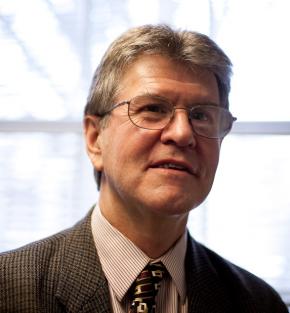Philip Jenkins: Companions of Life
 Philip Jenkins, “Companions of Life: A Supple Faith” Christian Vision Project, Books & Culture 13:2 (March/April 2007), pages 9-18.
Philip Jenkins, “Companions of Life: A Supple Faith” Christian Vision Project, Books & Culture 13:2 (March/April 2007), pages 9-18.
Philip Jenkins, professor of history and religious studies at Pennsylvania State University, is one of the most invigorating voices currently investigating the present state and future fate of global Christianity. Having read his work (e.g., The Next Christendom) and heard him speak (at a Society for Pentecostal Studies meeting) I have come to appreciate both his wit and wisdom, humor and insight. Hopefully, he would appreciate my ideological identification of him as the “Mr. Fantastic” of contemporary Christian studies! Mr. Fantastic, the leader of Marvel Comics’ superhero team “Fantastic Four” (since 1961) and in two major motion pictures to date (2005, 2007), is a scientific genius and incredibly flexible, able to stretch his body into great lengths and shapes. In an exciting scene from the 2005 film he contains his unruly friend, “The Thing,” who is huge, hard, and amazingly strong, by wrapping himself around him until he cannot move. Thus he proves that flexibility and mobility can overcome brute strength and sheer size. And here we have Philip Jenkins’ “supple faith.” But lest we allow my comic book illustration to mislead, let it now be known that Jenkins is most serious and should be taken so by readers. Recognizing his expertise in the area of Christian mission, Books & Culture printed his “provocative answer,” as they called it, to their question, “What must we learn, and unlearn, to be agents of God’s mission in the world?” And indeed, his answer is must reading for those most interested in contemporary Christian mission.

Philip Jenkins
Jenkins begins by noting European and American Christian missions have been astonishingly successful around the world; so much so, in fact, that the demographics and dynamics of global Christian identity have been significantly transformed. The majority of Christianity now resides outside the global North inside the global South. Consequently, Jenkins recommends rethinking mission. First, “we Northerners” need to better appreciate our place in the wider Christian context. We do not represent the norm within Christianity and may over time become more marginalized. The average or ordinary Christian today lives in poverty in a non-stable nation-state probably without a real priority on human rights. This profile calls for a reorientation of priorities. According to Jenkins, although we don’t need to completely give up on gospel proclamation quite yet, we’ve done a good basic job of reaching the world and now need to consider our “primary obligation” (original italics) that of helping the many who are already Christians improve their dire and dreadful living circumstances. Also, rather than thinking exclusively in terms of foreign missions, we need to take account of opportunities provided by globalization and immigration bringing former missionary prospects to our own shores instead. Finally, we might also begin to think in terms of “reconversion.” Countries and even continents once prominently considered Christian are experiencing a “dechristianization” process. So then, for example, how to “rekindle the ancient flames” in the faith of Europe could be an extremely important project.
Category: Living the Faith, Summer 2007


